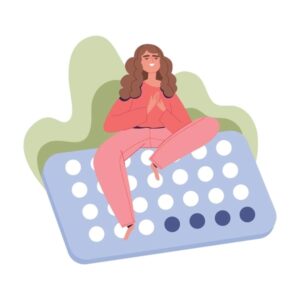 Physicians for Reproductive Health had the opportunity to submit information to the Departments of Health and Human Services, Labor, and the Treasury (the Departments) about the benefits of coverage for over-the-counter (OTC) contraception, (PrEP), folic acid, and breast/chestfeeding supplies without out-of-pocket costs. (Read Comments).
Physicians for Reproductive Health had the opportunity to submit information to the Departments of Health and Human Services, Labor, and the Treasury (the Departments) about the benefits of coverage for over-the-counter (OTC) contraception, (PrEP), folic acid, and breast/chestfeeding supplies without out-of-pocket costs. (Read Comments).
We believe that people should be able to access the health care they need and want without having to overcome any barriers. That’s why we support insurance coverage for OTC preventive care without cost-sharing. The cost of sexual and reproductive preventive health care should not stop people from being able to take care of their well-being.
A key component of sexual and reproductive health and well-being is preventive care, including contraceptive care, HIV prevention, prenatal vitamins and supplements, breast/chestfeeding, and so much more! Preventive care can help prevent unintended pregnancies, stop the spread of sexually transmitted infections (STIs), and prevent HIV infections. Preventive care can also prevent pregnancy complications and can improve the overall health of infants. We provided the Departments with information regarding why ensuring access to all forms of OTC contraceptives, PrEP, folic acid supplements, and breast/chestfeeding supplies without cost to the individual will advance reproductive preventive health care for all.

Significant barriers prevent people from being able to access the preventive care they want, including lack of insurance coverage, lack of access to reproductive and sexual health care providers, and lack of culturally competent providers.
One of the main barriers is the cost of preventive items. Depending on the method, OTC birth control can cost a person anywhere from $5 to $50. Folic acid supplements can cost anywhere between $6 to $42. Breast/chestfeeding supplies carry significant costs, as breast pumps can cost anywhere between $25 to over $200, a 100-bag supply of breast milk bags costs around $15, and a set of bottles can cost $25. Nursing supplies that help make breastfeeding easier for the breastfeeding person are also pricey. Buying nipple cream, nursing bras, nursing pads, and a nursing pillow can cost up to $150. Out-of-pocket costs make many forms of preventive care inaccessible to many people, barring them from doing what is best for their well-being.

Ensuring people can access these critical reproductive and sexual preventive health items through their insurance without out-of-pocket costs will help address the barriers to preventive care many people face. We urge the Departments to take action to reduce barriers to these essential preventive care and services by ensuring that people have access to reproductive and sexual health care preventive items without cost-sharing, regardless of insurance status.
No-cost coverage for OTC preventive items will ensure that everyone can access preventative care methods and will advance positive reproductive and sexual health outcomes for all.

